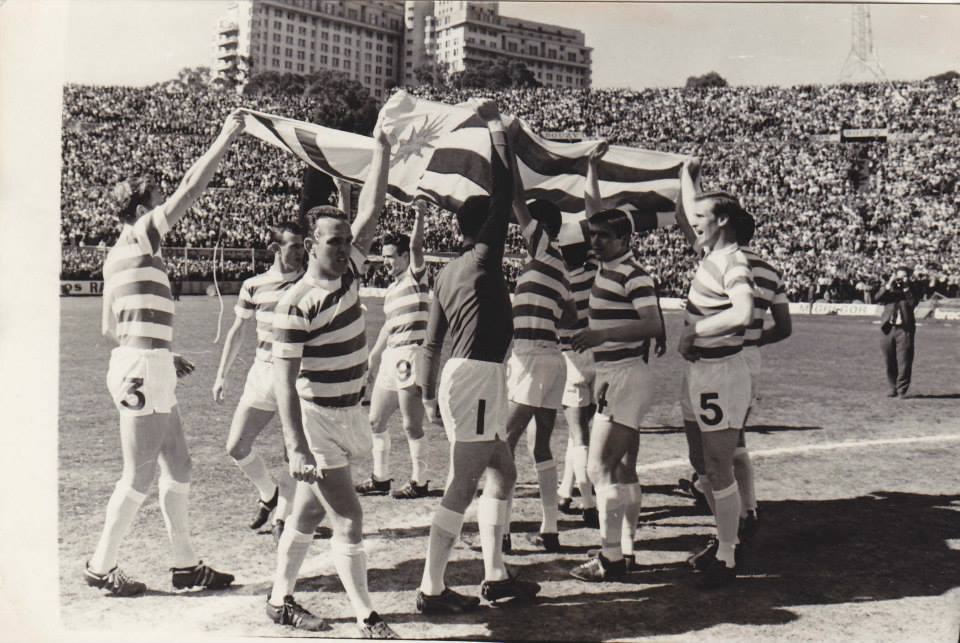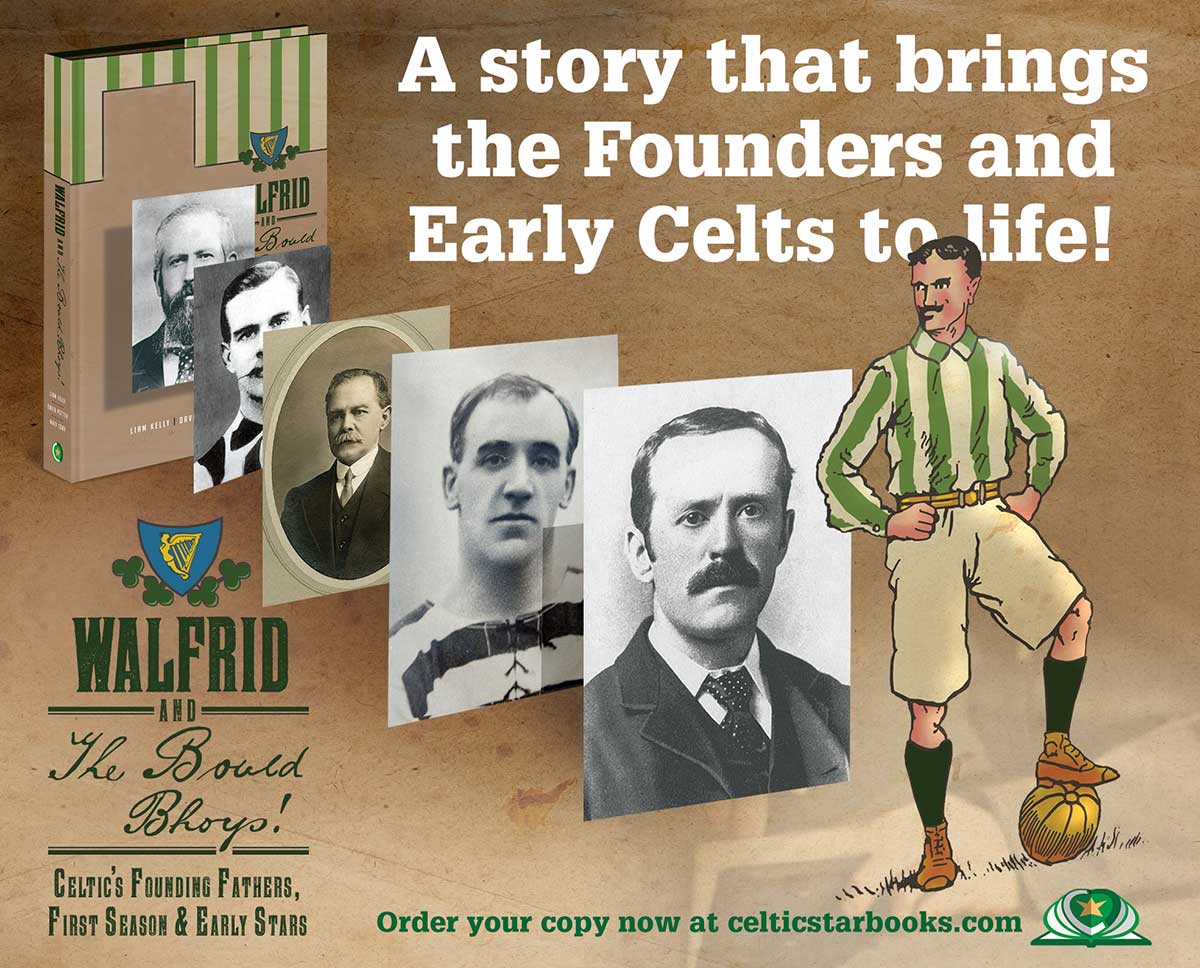Yes, while I had been getting my revenge on Raffo a TV camera high in the stands had followed my every move. I haven’t seen that particular film yet, but I’ve been told often enough that my hasty retreat after delivering the blow did not look particularly dignified on the screen. I thought I was just helping the cause of justice…but I never thought justice would be seen to be done by about ten million British viewers, including my family and friends. I was widely criticised, of course, especially by English critics who had been waiting on an opportunity to knock Celtic. They had been shocked when we won the European Cup; annoyed that we had done so much more than any of their teams.

Even my mother said to me the first time I visited her after the TV film had been shown: ‘Why did you have to go and kick that man?’ I explained, as I’ve tried to explain here, and I think she understood. Many other people still think what I did to Raffo was outrageous, but I think they will understand the atmosphere in Montevideo better when I tell this story, which has never been told before.
The fact is, the most amazing thing about that game, as far as I was concerned, happened as I was walking off the field, Raffo ran over to me…and was smiling. He made signals and at first I thought he was looking for a fight! Then I realised he wanted to swap jerseys with me. Swapping jerseys is an international football custom, of course, but you tend to do more of it in a game where relations have been good. It seemed strange to me in that situation and I admit I was suspicious. I thought: ‘This bloke probably wants me to pull the jersey over my head so he can belt me one when I can’t see him.’
But Raffo looked so darned friendly I felt I could hardly turn him down. So I warily got out of one sleeve first, then the other, then, stepping back quickly, I whipped my jersey over my head. His smile became even broader, and as we swapped jerseys he warmly shook my hand. Indeed, as he ran towards the tunnel he had a grin on his face and, in English, he shouted a little remark about the accuracy of my kick.
In the game of football as we know it, it seems unlikely that Raffo should have anything to do with me. But at home, among my other souvenirs, I have a neatly pressed Racing Club jersey with vertical blue and white stripes and a No.11 on the back which proves that its former owner was less upset by that kick than the millions of TV fans who saw it in Britain.
Players like him kick – and expect to be kicked. It is the way some of them play the game. Referees in most European countries would not stand for that behaviour. That’s why I started off warning youngsters that playing in the World Championship is an experience they can probably do well without. I feel certain Celtic would not take part again in similar circumstances. It is a good idea that the European Champions should meet the Champions of South America each year, but these games are going to get out of control too often unless these is a neutral venue.
I would play the World Final in New York. It might deprive the clubs of a financial bonanza, but if the referee was a thoroughly reliable man, carefully selected, then we could be sure the winners would be worthy champions. I certainly think no British team should ever agree to a World series in which two of the three matches could be played in South America. If the 1967 title had been decided over ninety minutes in a neutral country there is no doubt we would have been able to take it back to Parkhead.
As it was, our encounter with Racing Club brought us nothing but trouble. After we got home, and even after the TV film, another shock awaited those of us who had played in Montevideo.
One morning during training we were told the Chairman wanted to meet us at 11.30. The Boss admitted that it had to do with our behaviour in that third game in Uruguay. Celtic through the years had always had a good reputation for discipline on the field and it certainly been tarnished in Montevideo. There had to be a punishment and the Boss wanted our opinion on whether it should be spread over the entire team or merely those who had been sent off. We immediately said it should be a team affair. He had known what our answer would be anyway.
So there were eleven very shocked individuals in Parkhead that morning when Mr. Kelly announced that the Board had decided to fine each of us £250!
There were those who thought this was just a gesture to impress the public and that we would never really have to pay all that money. But they didn’t know Bob Kelly. He doesn’t do things like that – and every penny of the fine was deducted from bonuses, which we had earned previously in other matches.
Mr. Kelly was also ready, however, to accept part of the responsibility. As he announced the fines he confessed that he should have stuck to his original decision in Buenos Aires. He said he ought never to have allowed us to play in that third game and that he had no doubt in his own mind that he had made a mistake.
I think everyone would agree with him now. If we had refused to play the third game, especially after what happened to Ronnie Simpson, football people everywhere would have been on our side. Many would have regarded us as the best team in the world even if we had no official title. But it is easy to be wise after the event.
Tommy Gemmell




